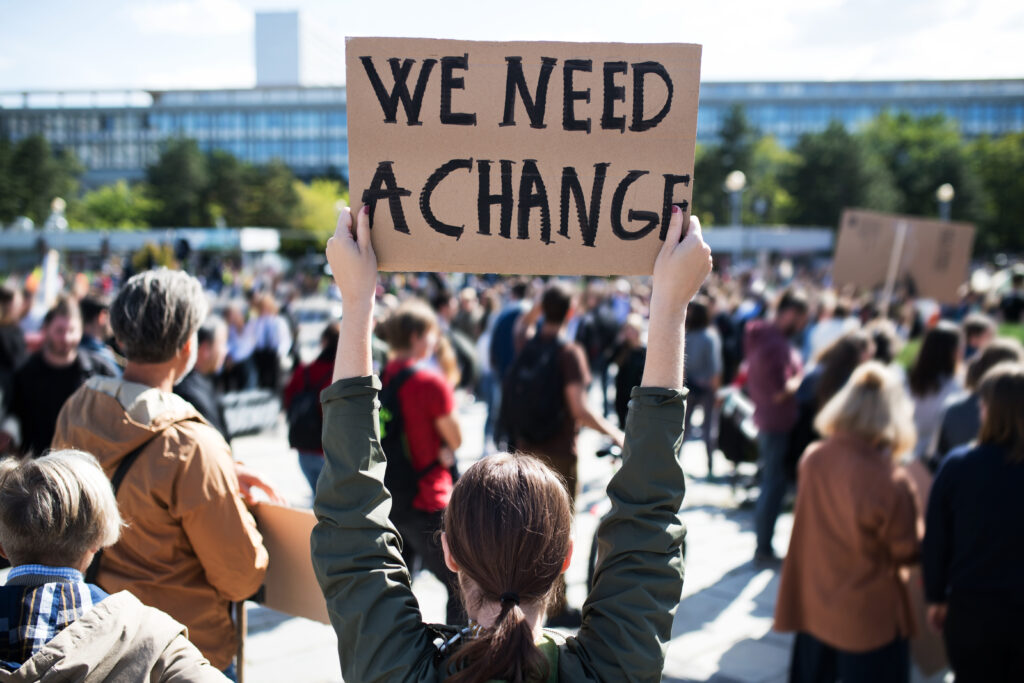
The article delves into the pervasive issue of discrimination faced by individuals with mental health and addiction problems. It explores the social stigma and the consequential negative impacts on both personal and professional aspects of life. The fear of being judged and the shame associated with these issues often prevent people from seeking the help they desperately need, further entrenching the cycle of suffering. By examining the barriers and proposing strategies to overcome them, the article aims to shed light on the importance of addressing these problems with empathy, education, and systemic change.

Patients grappling with addiction and mental health issues often encounter discrimination within healthcare settings, which can have profound effects on their willingness to seek future care. A recent report highlighted that nearly half of U.S. healthcare workers have observed discrimination against patients, underscoring the prevalence of this issue.
While some positive interactions with healthcare staff do occur, the inconsistency of these experiences contributes to a lack of trust in the healthcare system.
The avoidance of hospitals and healthcare services following negative experiences is a common consequence, as patients begin to associate healthcare environments with discomfort and unfair treatment. This avoidance behavior not only impedes access to necessary care but also perpetuates the cycle of stigma and discrimination.

The social stigma of addiction and mental health issues can profoundly affect personal relationships and social interactions. Loved ones often bear the brunt of the turmoil, with addiction leading to emotional distress and strained relationships. The uncertainty and stress can result in conflicts, affecting trust and communication within the family unit.
Recognizing the impact on loved ones is crucial in understanding the full scope of addiction’s reach. The ripple effect extends beyond the individual, influencing families, communities, and workplaces, leading to decreased productivity and increased healthcare costs.

Healthcare professionals play a pivotal role in shaping the experiences of individuals with substance use disorders (SUDs) or mental health issues. One systematic review found that healthcare professionals typically hold negative attitudes toward people with SUDs, resulting in patients experiencing reduced quality of care. These attitudes can manifest in various ways, from overt discrimination to subtle behaviors that patients perceive as judgmental.
Perceived attitudes of healthcare professionals may play a critical role in perpetuating the stigma and discrimination faced by people who use substances.
While some interactions with healthcare staff are positive, indicating that stigma is not universally present, the inconsistency highlights the need for comprehensive interventions. Addressing stigma requires not only individual awareness but also systemic changes to hospital culture and the implementation of hospital-based harm reduction strategies.
The consequences of stigma extend beyond the patient-practitioner relationship, affecting the overall healthcare of individuals. Patients may feel uncomfortable, avoid seeking medical attention, or leave treatment prematurely, leading to untreated health conditions and negative health outcomes. To combat this, additional training and education for healthcare providers are essential to ensure care is non-stigmatizing and patient-centered.

Individuals with mental health or addiction issues often face significant challenges in the workplace, which can hinder their employment stability and career progression. The fear of discrimination can lead to a reluctance to disclose such issues, potentially exacerbating the situation.
Employers have a duty to be both reactive and proactive. They must address potential hostility swiftly and keep updated with employment law to prevent legal responsibility for unaddressed harassment.
Consulting with an employment law attorney can provide guidance through the complexities of dealing with such workplace issues. Employers must also ensure they are informed about evolving employment law standards to effectively manage hostility in the workplace.

The pervasive stigma surrounding mental health and addiction issues can create significant barriers to career advancement. Employees may face discrimination or bias, which can manifest in reduced opportunities for promotion or professional development. This discrimination is not always overt; it can be subtle, yet equally damaging, influencing managerial decisions and team dynamics.
The belief that admitting to an addiction problem is a sign of weakness or failure only exacerbates the issue, leading many to suffer in silence rather than face potential stigma.
To address these challenges, it is crucial for organizations to foster an inclusive environment where mental health is prioritized and stigma is actively combated. By doing so, they not only support their employees’ well-being but also unlock the full potential of their workforce.

In the pursuit of creating supportive professional environments, it is essential to recognize the role of the workplace in maintaining the mental health and well-being of employees. Employers should focus on keeping anti-harassment policies current and ensure that recognition of employee milestones and professional development opportunities are readily available. This contributes to an atmosphere where individuals feel valued and part of a supportive community.
Supportive team meetings and access to counseling and therapy can be pivotal in fostering a healthy work environment. Equitable staffing models and educational support, such as training, are also crucial components.
To further illustrate the importance of support systems within the workplace, consider the following points:
These measures not only aid in the well-being of the workforce but also enhance the health of the broader healthcare system and the individuals they serve.

Education is a powerful tool in the fight against the stigma of addiction. By spreading accurate information and challenging stereotypes, we can foster a more empathetic and supportive community. It’s essential to address common misconceptions through open discussions, highlighting the brain disease nature of addiction and its contributing factors.
Education not only combats misinformation but also promotes understanding of the effectiveness of various treatment methods. This understanding is crucial for changing public perceptions and supporting those in recovery.
Partnerships with organizations like SAMHSA and their engagement with faith-based and community groups are pivotal in supporting resilience and recovery. These collaborations are instrumental in creating a more informed public that can contribute to a supportive environment for individuals facing addiction and mental health challenges.

Empathy and compassion are the cornerstones of a society that supports individuals struggling with addiction. Understanding addiction requires empathy and compassion, which can be fostered by humanizing those affected. This shift in perspective is essential for creating an inclusive environment where individuals feel encouraged to seek help.
Encourage empathy and understanding toward those struggling with addiction.
By promoting access to reliable resources and advocating for comprehensive public health policies, we can support individuals and their loved ones. It’s about changing perceptions and prioritizing treatment and support services to create a culture of compassion.

Public policy is a powerful tool in transforming the landscape of addiction and mental health services. Policies need to prioritize accessibility to affordable treatment centers, ensuring that individuals struggling with substance abuse disorders receive comprehensive care. Adequate funding is crucial for evidence-based interventions and support services, such as counseling and rehabilitation centers.
Advocacy by individuals with lived experiences of addiction is invaluable. Their stories and efforts can drive a positive shift in public perception and influence policies towards a more compassionate approach to recovery. Encouraging openness and providing education about addiction in healthcare, workplaces, and communities can create supportive environments for recovery.
Implementing supportive policies and practices is essential for reducing stigma and promoting inclusive environments where individuals feel supported in their recovery journey.

The fear of being judged can be a powerful barrier to seeking help for addiction and mental health issues. Individuals often anticipate negative judgment from others, which can lead to a reluctance to disclose their struggles. This anticipated judgment can stem from societal norms that equate addiction with moral failure or personal weakness.
The belief that admitting to an addiction problem is a sign of weakness or failure exacerbates the reluctance to seek help, leading many to suffer in silence.
The consequences of such stigma are not just emotional; they can also affect job performance and motivation. Early recognition and intervention are crucial to prevent the worsening of these effects.

Fear and shame are potent emotional barriers that often prevent individuals from seeking help for addiction. These feelings can lead to isolation and a reluctance to acknowledge the need for treatment. To address these barriers, it is crucial to foster a supportive environment where individuals feel safe to confront their struggles without judgment.
Addressing treatment barriers is essential for improving access to care. Exploring alternative treatment options ensures individuals have access to the support they need.
Promoting awareness of alternative treatment options is also vital in overcoming misconceptions about recovery centers. It is important to challenge biases and refine addiction treatments based on inclusive findings. Accessibility and affordability of treatment centers and support services must be within reach for everyone, regardless of their financial situation.

Ensuring that individuals have access to affordable and diverse treatment options is a cornerstone in the fight against addiction and mental health stigma. Affordable care and accessible services are non-negotiable in the journey towards recovery, as they allow individuals from all financial backgrounds to seek the help they need without the burden of excessive costs.
Overcoming stigma through education and inclusivity is essential for improving access to care. It paves the way for a better understanding of addiction and dispels misconceptions that hinder support.
Promoting awareness of alternative treatment options is vital. It challenges biases and refines addiction treatments based on inclusive findings. This approach ensures that support and recovery resources are available to all in need, not just those who can afford traditional treatment paths.

Addiction’s reach extends far beyond the individual, casting a shadow over families, communities, and workplaces. Recognizing the impact on loved ones is crucial in understanding the full scope of addiction’s reach. Shared finances, physical and mental health, and overall family dynamics can suffer significantly when one member is struggling with addiction.
The turmoil within a family can have lasting effects, especially on children who may experience neglect or exposure to traumatic situations, potentially leading to their own mental health issues.
The societal impact is also profound, with strained relationships, decreased productivity, and increased healthcare costs. By addressing these broader impacts, we can begin to understand the true nature of addiction and work towards more effective interventions.
A shift from stigma to empathy and accurate representation is essential. Public policy should focus not only on individual treatment but also on the societal impact, emphasizing education and prevention efforts at the community level.

Supporting a loved one through addiction is a delicate process that requires empathy, patience, and a strong support system. Recognizing the impact on loved ones is crucial in understanding the full scope of addiction’s reach. It’s not just the individual who suffers; families, friends, and communities feel the ripple effects, leading to strained relationships and emotional distress.
Addiction causes strain on relationships, leading to emotional distress for family members and loved ones. The uncertainty and stress that addiction brings can lead to conflicts and affect trust and stability in daily life.
Support also extends to providing practical help, such as access to certified addiction counselors, substance abuse treatment centers, and sober living homes. Debunking misconceptions about addiction is essential in fostering an environment conducive to recovery and ongoing care.

Community initiatives play a crucial role in supporting holistic recovery by creating an environment that fosters healing and growth. Implementing supportive policies and practices in healthcare, workplaces, and communities is essential for reducing stigma and promoting recovery.
These initiatives not only aid individuals but also contribute to a more informed and empathetic society, where the journey to sobriety is met with support rather than judgment.
Additionally, integrating various therapy modalities, such as cognitive-behavioral therapy and medication-assisted treatments, tailors recovery programs to individual needs. Recognizing the effectiveness of diverse treatment options is vital in addressing the unique circumstances and preferences of those seeking help.
The pervasive stigma surrounding mental health and addiction issues casts a long shadow over the lives of those affected, often leading to discrimination and negative consequences in both personal and professional realms. Fear and shame act as formidable barriers to seeking help, exacerbating isolation and hindering recovery. The testimonies of individuals who have faced such challenges underscore the urgent need for education, awareness, and empathy to combat stigma. Addressing treatment barriers, including affordability and accessibility, is equally critical to creating a supportive environment conducive to healing. As society begins to recognize the broader impacts of addiction on communities and loved ones, it becomes clear that destigmatizing mental health and addiction is not just a personal concern but a societal imperative. Only through collective efforts to foster understanding and eliminate prejudice can we hope to improve outcomes for those struggling with these issues and promote a more inclusive and compassionate community.
Individuals with addiction often face discrimination in healthcare settings, being seen as ‘just a drug addict or junkie.’ This perception can lead to their concerns being disregarded, resulting in poor therapeutic relationships and a lack of desire from healthcare professionals to provide adequate care.
The stigma associated with addiction can lead to discrimination in the workplace, difficulty in finding employment, and strained personal relationships. These challenges contribute to isolation and hopelessness, further complicating recovery.
Strategies to combat addiction stigma include promoting education and awareness to foster understanding, implementing policy changes, and advocacy to support those affected by addiction.
Stigma can prevent individuals from seeking help due to fear of judgment from peers, family, and professionals. The belief that admitting to an addiction problem is a sign of weakness or failure leads many to suffer in silence.
Barriers to seeking addiction treatment include fear, shame, affordability issues, and limited treatment options. Addressing these barriers involves fostering a supportive environment, destigmatizing addiction, and exploring alternative treatment options.
Addiction’s impact extends beyond the individual, affecting their loved ones, communities, and society. Understanding these broader impacts is crucial for creating community initiatives and providing holistic recovery support.
